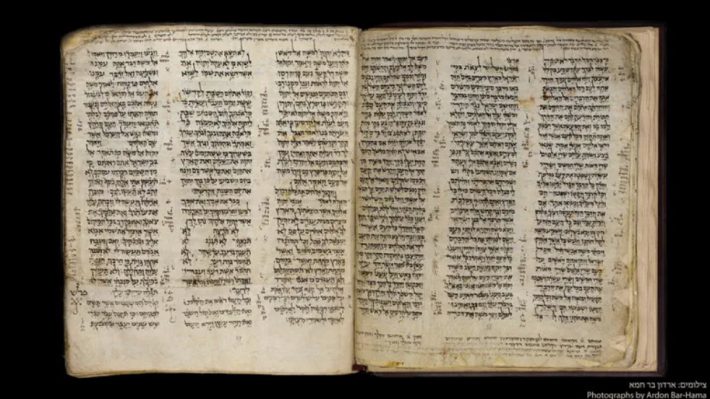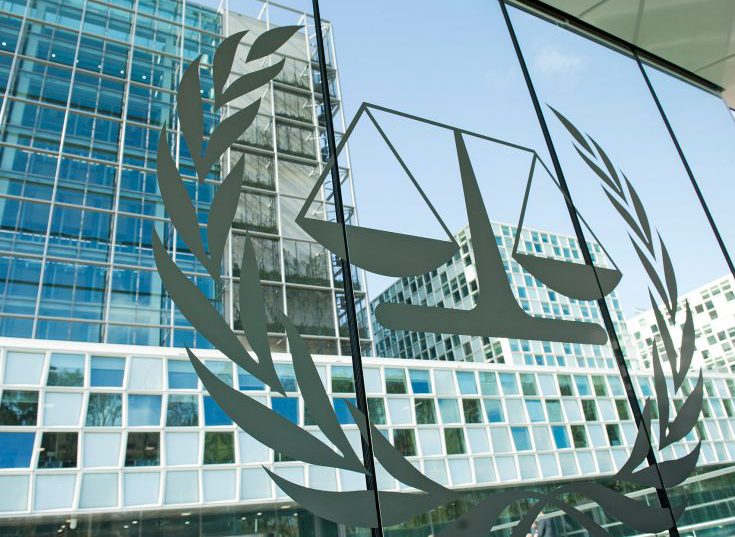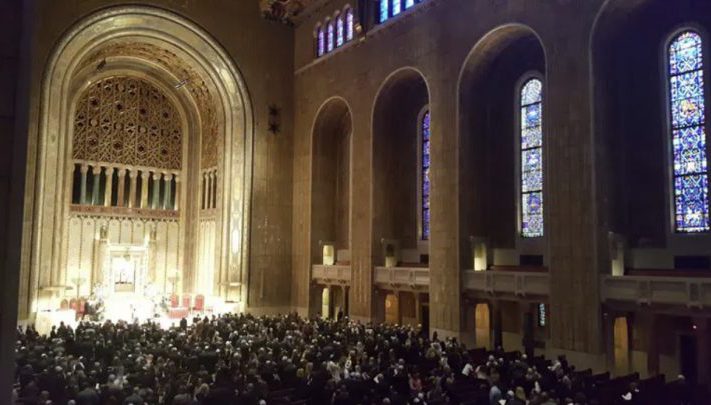If we are willing to face a painful truth, we can learn a very important lesson from this. There is no guarantee that a very learned person will also be a great Tzadik (righteous person).
The Dangers of Ambition and Projection in Leadership Challenges
The forty-year sojourn in the wilderness, which followed the tragic episode of the Spies, was marked by several calamities; the most severe of which was the rebellion of Korach — the focus of this week’s Parsha. Korach was the son of Yitzhar, Moshe’s father Amram’s brother, making him Moshe’s first cousin, and as such, was entitled to the benefits that were accorded to the Levites. One would have thought he would be satisfied with that distinction and naturally be supportive of the leadership of Moshe. But, unfortunately, it was not to be.
This is because, as Rashi explains, “he took himself to one side”. (Rashi BaMidbar 16:1) He was completely consumed by his belief that Moshe acted illegitimately in assigning the Kehunah to Aharon and his descendants. [This was the real prize, where all the honor went.] He became convinced that Moshe did so because he wanted to maintain total power in the newly formed Israelite nation. It is very likely that because Korach himself craved power and prestige he automatically assumed that Moshe was just like him. He therefore interpreted all of Moshe’s actions as manifestations of the thirst for dominion which Korach projected onto him.
It is interesting to ask, had we been in his position, what would we have thought? Why had this former prince of Egypt who had escaped because he was wanted for murder suddenly return to that country bearing a message that he had been assigned a special role by Hashem? True, Moshe had done wonderful things in fulfilling his Shelichut (Assignment), leading the Jews out of Egypt, rescuing them with the splitting of the Sea and receiving the Torah at Har Sinai (Mount Sinai), but what was his underlying motivation?
Additionally, we must ask, did Korach not believe in Maamad Har Sinai (Revelation at Mount Sinai) and if so, how could he question the authenticity of Moshe’s mission? In my opinion, Korach did not deny the divinity of the Torah and that Moshe’s authority came from Hashem. So on what basis could he impugn the character of Moshe?
Perhaps he reasoned that no human, irrespective of how exalted he may be, is beyond sin. Thus, perhaps Korach imagined that while Moshe at first was “the most humble person on the face of the earth” (BaMidbar 12:3) there was no guarantee that he would always remain that way. Power has a way of corrupting people, and Korach maintained that this is what happened to Moshe. Korach reasoned that although Moshe had displayed great modesty initially, he must have subsequently developed a taste for being in charge, and that was why he kept the Kehuna (priesthood) in his immediate family. Korach assumed he acted nepotistically, by appointing his brother Aharon to be the Kohen Gadol (chief Kohen).
Learned but Not Righteous: When Torah Knowledge Lacks Virtue
There is, however, something very troubling in this disturbing episode. It has to do with the identity of the major participants in Korach’s uprising. They were not ordinary individuals. According to Rashi, the two-hundred-and-fifty men who joined with Korach were Rashei Sanhedriot (Heads of Jewish Courts). According to the Midrash, they asked Moshe provocative Halakhic (Jewish legal) questions and mocked his straightforward answers. This constitutes an extremely disrespectful treatment of the greatest prophet of all time. How is it possible that the outstanding Gedolei HaDor could act in such a manner?
If we are willing to face a painful truth, we can learn a very important lesson from this. There is no guarantee that a very learned person will also be a great Tzadik (righteous person). Many people are motivated to pursue knowledge, not because of their intrinsic love of truth and desire to live by it. They only do so to achieve recognition and other benefits. Many of the scholars who stood with Korach came from the tribe of Reuven, who felt jilted at having been denied the rights of the firstborn by their ancestor, Yaakov. Korach, who was a very shrewd agitator, knew how to exploit the grievances of those who believed that they had been bypassed by others who had taken what, rightfully, should have been theirs.
Society suffers when people, who, while they may be brilliant in their knowledge of Torah, have not acquired all the appropriate Middot (Character Traits) that are necessary for righteous leadership. Many learned individuals went along with the scheme of Korach without having thought through all of the consequences, acting as though Divine punishment was not even a possibility. It is not clear what they believed they would gain from this coup against the righteous leader who had led them out of Egypt, spoke to Hashem on Mount Sinai, and secured their food and water in the Wilderness. Did they truly think ahead and consider what the consequences of their actions might be?
One must be very careful before aligning oneself with a group that seeks to rebel against an existing establishment. Very often, these rebels will employ your services but keep all the benefits of success to themselves, leaving nothing for you. Thus, one may find oneself in a situation with everything to lose and nothing to gain.
Rav explains, in Sanhedrin 109b-110a, that one of the original plotters of the rebellion, Ohn ben Pelet, was saved by the very shrewd calculations of his wife. She realized what was happening and that her husband was simply being dragged along by the actual leaders of the revolt. She reasoned with her husband according to plain common sense.
“She said to him: ‘What is the difference to you? If this Master, [Moshe,] is the great one, you are the student. And if this Master, [Korach,] is the great one, you are [still] the student. Why are you involving yourself in this matter?’
Ohn said to her: ‘What shall I do? I was one of those who took counsel, and I took an oath with them that I would be with them.’
She [cleverly replied]: ‘I know that the entire assembly [considers themselves] holy, as it is written: [they said] “For the entire congregation is holy” (BaMidbar 16:3), [and they will recoil from confronting a woman whose hair is provocatively exposed]’
She said to him: ‘Sit, for I will save you.’
She gave him wine to drink and caused him to become drunk and laid him down inside [their tent]. She [then] sat at the entrance of the tent and exposed her hair [in a manner not keeping with modesty]. Anyone who came and saw her turned back.”
And indeed that is what happened. The conspirators came by to get Ohn but retreated when they witnessed the immodesty of his wife. By the time Ohn woke up, the rebels had already been swallowed in the earth.
The Power of Wise Counsel in Avoiding Catastrophe
Chazal (our Rabbis) were impressed with this account, and praised Ohn’s wife with the verse “Wise women, [each] builds her house” (Mishlei 14:1). As for Korach’s wife, who incited him to instigate this disaster, Chazal attribute the remaining words of that verse, “but the foolish one tears it down with her hands.” [Note: One should seek to build one’s Bayit (Home) only with a wise woman, who fears Hashem.]
An important lesson of this tragic story is that before getting carried away by wild slogans and revolutionary passions, one should soberly assess things from a practical standpoint and seek to understand the possible risks and rewards that might befall him. And even more importantly, one should seek intelligent counsel from the right people. We see the great benefit of having a wise spouse who has your true interests at heart, and retains clarity of vision, while others are being influenced by wild fantasies.
The Role of Independent Thinking in Seeking Truth
And finally, we must recognize that even great people can become a source of danger. In this case, the two-hundred-and-fifty leaders of Sanhedrins (Jewish Courts) agreed that Moshe had allegedly gone too far in his pursuit of power. However, they were gravely mistaken, and whoever would accept their words because of their exalted status would suffer great harm. There are times when it cannot be simply assumed that the “authorities” are always correct. You must challenge them and use your own independent mind in order to seek out the truth.
Hashem has given us the ability to do so, and we must train ourselves in the art of independent thinking. The greatest Rabbis have said to their students that they should not just accept their ideas without analysis, but should challenge and question them; thereby forcing the teachers to defend their ideas and clarify them. Indeed, it is only through a vigorous give and take between teacher and student, which is undertaken for the “sake of Heaven”, that the truth of Hashem’s Torah will emerge.
May this always remain our goal. And may Hashem guide and assist us in this noble endeavor.
Shabbat Shalom.
Questions? Comments?
Please reach out to Rabbi Mann on WhatsApp at 050-709-2372 or by email at rebmann21@aol.com.
Alternatively, contact Mitch Rosner on WhatsApp at 054-426-3419 or by email at mitchrosner@gmail.com.
Dear Friends,
My newest book, Eternally Yours: Torah’s Enduring Relevance for a Life of Wisdom on Devarim, has been published and is now available at: https://amzn.to/3NBewg7. I hope that my essays will enhance your reading and study of the Book of Devarim and would greatly appreciate a brief review on Amazon.com.
For those in Eretz Yisrael, my books are available at David Linden’s Bookstore located at Emek Refaim Street 21, Jerusalem, and at Pomeranz Bookstore, Be’eri 5, Jerusalem. They are very nice stores to visit and browse.
Additionally, I have a new series of YouTube videos called “Rabbi Reuven Mann Torah Thoughts.” You can find them here: https://bit.ly/49N8hyX.





